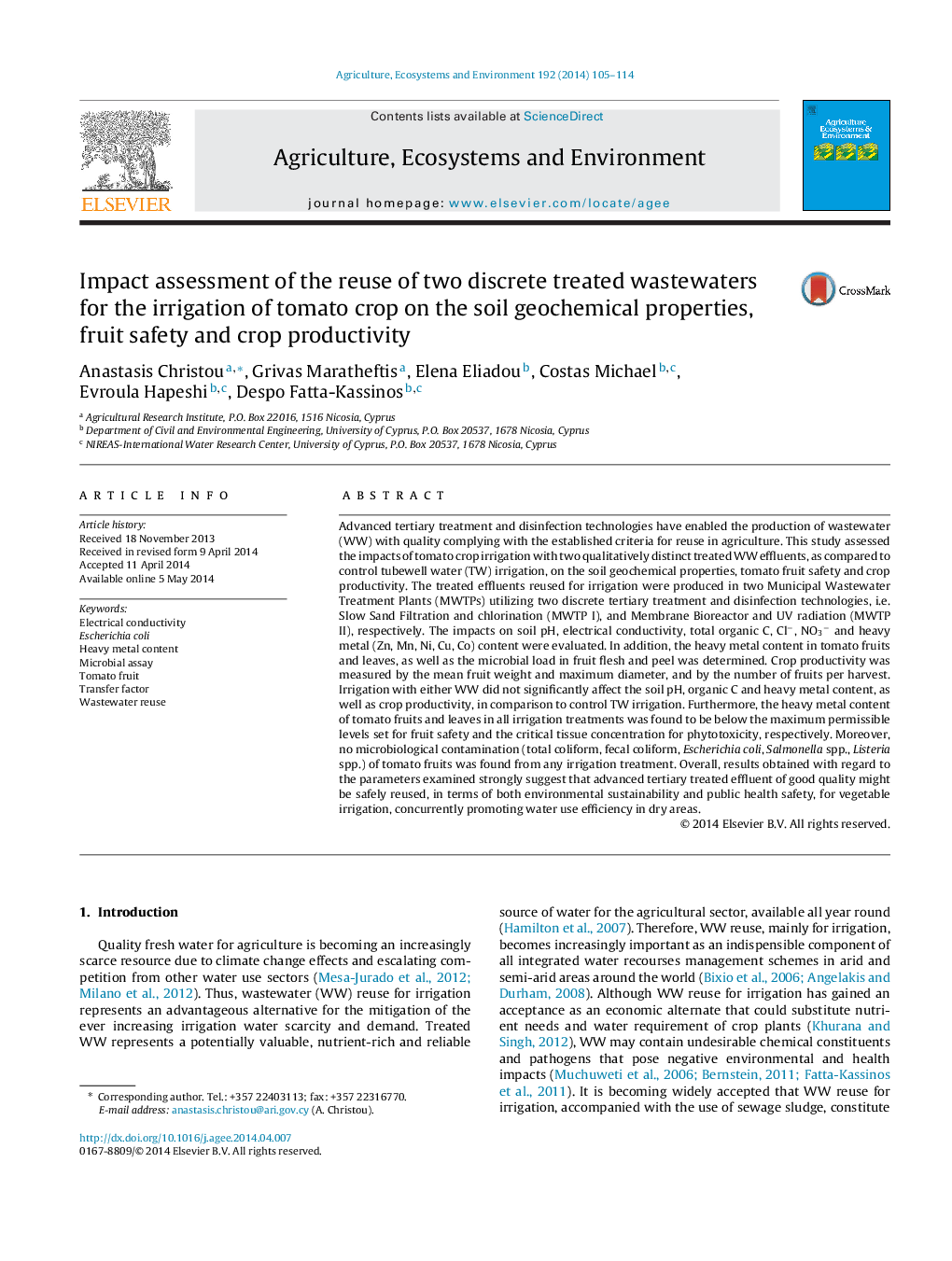| کد مقاله | کد نشریه | سال انتشار | مقاله انگلیسی | نسخه تمام متن |
|---|---|---|---|---|
| 2413941 | 1552060 | 2014 | 10 صفحه PDF | دانلود رایگان |
• Treated wastewater from two tertiary treatment technologies was applied for irrigation.
• Wastewater irrigation did not significantly impact soil heavy metal content.
• Heavy metals in tomato fruits were within the safe limits for public health.
• No microbial contamination was found in fruits from any irrigation treatment.
• Wastewater irrigation with both treated flows did not impact tomato crop productivity.
Advanced tertiary treatment and disinfection technologies have enabled the production of wastewater (WW) with quality complying with the established criteria for reuse in agriculture. This study assessed the impacts of tomato crop irrigation with two qualitatively distinct treated WW effluents, as compared to control tubewell water (TW) irrigation, on the soil geochemical properties, tomato fruit safety and crop productivity. The treated effluents reused for irrigation were produced in two Municipal Wastewater Treatment Plants (MWTPs) utilizing two discrete tertiary treatment and disinfection technologies, i.e. Slow Sand Filtration and chlorination (MWTP I), and Membrane Bioreactor and UV radiation (MWTP II), respectively. The impacts on soil pH, electrical conductivity, total organic C, Cl−, NO3− and heavy metal (Zn, Mn, Ni, Cu, Co) content were evaluated. In addition, the heavy metal content in tomato fruits and leaves, as well as the microbial load in fruit flesh and peel was determined. Crop productivity was measured by the mean fruit weight and maximum diameter, and by the number of fruits per harvest. Irrigation with either WW did not significantly affect the soil pH, organic C and heavy metal content, as well as crop productivity, in comparison to control TW irrigation. Furthermore, the heavy metal content of tomato fruits and leaves in all irrigation treatments was found to be below the maximum permissible levels set for fruit safety and the critical tissue concentration for phytotoxicity, respectively. Moreover, no microbiological contamination (total coliform, fecal coliform, Escherichia coli, Salmonella spp., Listeria spp.) of tomato fruits was found from any irrigation treatment. Overall, results obtained with regard to the parameters examined strongly suggest that advanced tertiary treated effluent of good quality might be safely reused, in terms of both environmental sustainability and public health safety, for vegetable irrigation, concurrently promoting water use efficiency in dry areas.
Journal: Agriculture, Ecosystems & Environment - Volume 192, 1 July 2014, Pages 105–114
